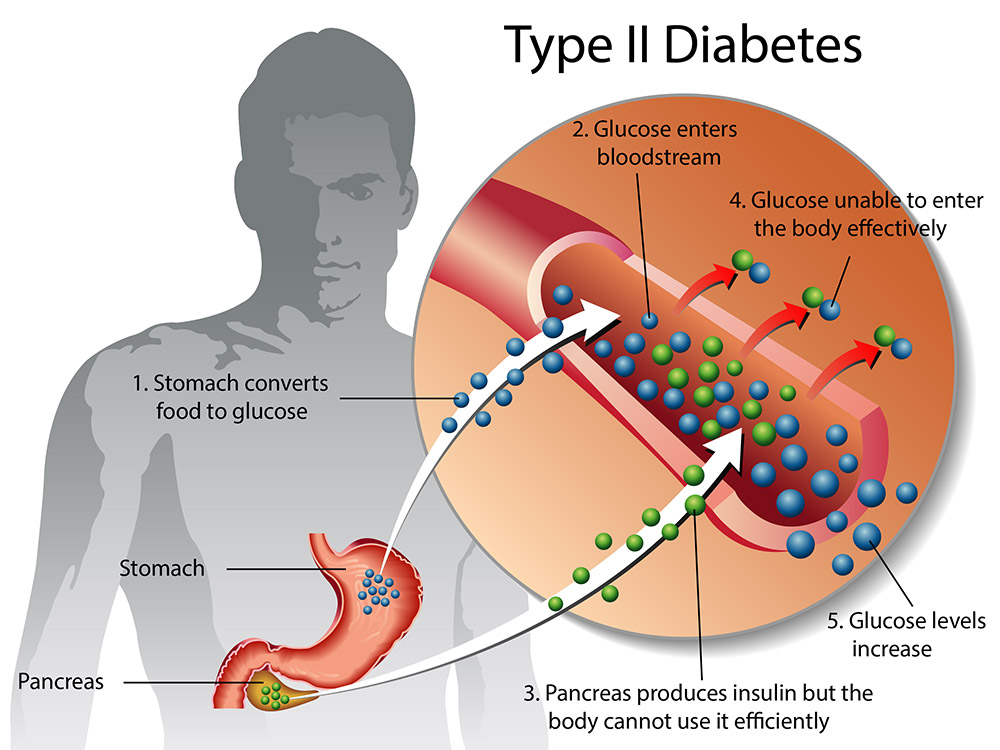
07, Jun 2022
For those who have type 2 diabetes, their cells are unable to absorb glucose from meals in an appropriate way. Heart disease, kidney failure, and stroke may all be caused by uncontrolled Type 2 Diabetes if it isn't effectively managed. This condition may be managed with lifestyle changes, medication, and/or insulin injections, as well as regular visits to your physician.
Your blood sugar level is an area of your health that is sometimes disregarded. If the imbalance remains for an extended period of time, diabetes mellitus is a risk.
Diabetes may impair your body's ability to produce or use insulin, a hormone that aids in the conversion of glucose (sugar) into energy. To do this, your body needs insulin. As a result, your blood glucose levels rise, depriving your body's other cells of the energy they need to function properly. As a consequence, a wide range of illnesses affecting almost all of the body's major systems may occur. Choosing the diabetes screening service in Melbourne, Florida is the best choice.

If your pancreas produces very little or no insulin, or if your body is unable to use insulin, other hormones will be used to transform fat into useful energy. Diabetic ketoacidosis, a disorder characterized by an overabundance of acids and ketone bodies, is a possible outcome.
If you have diabetes, your kidneys may be damaged, reducing their ability to eliminate waste from your blood. In the case of microalbuminuria, excessively high quantities of protein in your urine, your doctor may conclude that your kidneys aren't functioning properly.
Diabetes is the root cause of diabetic nephropathy, a kidney disease. In the latter phases of this condition, symptoms begin to emerge.
Your doctor will check for nephropathy if you have diabetes to prevent kidney damage or failure. Diabetes may cause nephropathy.
The heart and blood vessels of Diabetics are more likely to suffer from high blood pressure, which increases the strain on their heart.
Fat deposits on the walls of arteries may form if your blood glucose levels are regularly high. The thickening and hardening of the arteries, known as atherosclerosis, may occur as a result of long-term use.
When diabetes affects the skin, which is our largest organ, it may create a variety of health issues. A lack of moisture in the body may lead to dry, cracked feet if you have high blood sugar levels. Another factor contributing to this issue is a lack of fluid intake.
Following a shower or swimming pool, it is essential to completely dry your feet. Take care not to let these regions become overly moist with petroleum jelly or light lotions. The diabetes screening Melbourne, Florida services are the best there.
Diabetic neuropathy, or nerve damage, is caused by diabetes. It's possible that this will affect how you feel about things like heat, cold, and pain. This may increase your risk of harm as well.
Gestational diabetes and high blood pressure are both made more likely by the shifting hormone levels that occur throughout pregnancy. Preeclampsia and eclampsia are two forms of preeclampsia and eclampsia, respectively, of high blood pressure in pregnancy.
Dr. Sue Mitra and her staff strive to offer their patients the best care, advice and services available in the medical field with the goal to keep patient healthy & happy.

Dr. Sue Mitra is board certified in international medicine. She is seen here with a Cologuard, which is a noninvasive colon cancer screening test. (Photo by: Tim Shortt/Florida Today)